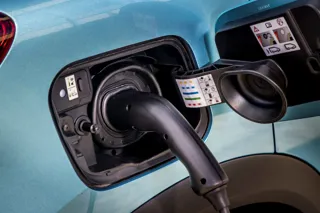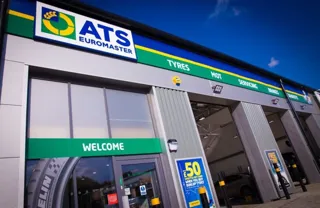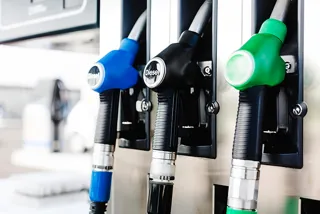Mathias Loeser, senior manager, sustainability solutions at Engie Impact
As the world wrestles with the climate crisis, the automotive sector (along with every other major industry) must make decarbonisation a priority.
Doing so will require a transformation far beyond the incremental changes most businesses are accustomed to.
Indeed, achieving net zero for automakers is a complex journey, and one that requires clearly defined strategies in cost control, infrastructure and renewable energy.
However, businesses must not bury their heads in the sand.
Decarbonisation is no longer a choice, but a business imperative.
Those that fail to act will quickly lose consumer confidence and eventually be caught out by the complex regulatory landscape.
Instead, automakers should look to design a decarbonisation strategy that not only satisfies regulators and consumers, but also drives business growth for the long haul.
The road to net zero
Historically, the drive to net zero was of limited importance, therefore companies preferred to focus on the fuel emissions of the vehicle rather than the emissions of the production of the vehicle.
With this change in focus, companies are now setting ambitious targets not only for themselves but for their supply chain, too.
To drive change, alignment is needed on Scope 3 emissions – a pervasive and complex challenge, as they include 15 distinct categories and possibly thousands of partners.
Therefore, increased transparency and collaboration are needed for automakers to effectively decarbonise their global supply chain.
Improving stakeholder engagement
Stakeholder engagement is a necessity from the beginning of any decarbonisation project. A more intensive and systematic model of collaboration is needed, one in which automakers actively lead and invest in the decarbonisation of production. This can be achieved by setting clear objectives and considering financial models to support sourcing practices.
When looking to decarbonise tier 1 suppliers and upstream raw materials, automakers should consider some key actions:
Developing a thorough understanding of your supply chain emissions and focusing on key categories.
Identifying high emitters within these key categories and then engaging them through collaboration and direct support to help them meet their carbon reduction targets.
Establishing clear targets that are precise and achievable; common frameworks like SBTi can be used to avoid uncertainties in carbon reporting, and setting realistic and achievable targets ensures suppliers are kept on board rather than disillusioned.
Decarbonising material production
Balancing rising battery demand, chip shortages and other major supply chain disruptions makes decarbonising material production a difficult task for automakers.
However, by investing in decarbonisation now, businesses can reap the benefits of transformation at pace and scale.
The key is to switch from focusing on short-term return on investment to total cost of ownership (TCO), in which the impacts of investments are calculated over a longer period.
As an example, ground-breaking programmes like Faurecia’s CO2 Neutrality Strategy are leading the decarbonisation of manufacturing processes through a mix of on-site energy efficiency and renewable supplies.
Adopting a much-needed circular economy model presents challenges, but also significant cost savings for manufacturers.
Automobiles should be designed for reuse of secondary materials and recycling from the beginning.
By adopting new efficiencies such as decarbonised heat and energy efficiency across production, progress can be made towards offsetting the cost of reconfiguration.
There is a significant cost-saving advantage over the long haul for businesses that invest in sustainability.
According to Engie Impact’s 2021 Net Zero Corporate Readiness report, nearly 70% of companies say they do not use sustainable frameworks to guide capital allocation for decarbonisation projects.
Therefore, they are missing an opportunity to lower their costs by focusing on long-term, sustainable targets – instead of making decisions based on short-term budget constraints.
Despite the challenging macroeconomic environment, automakers should press accelerate on their sustainability transformations: investing in a carbon reduction strategy has never been easier or cheaper.
Organisations have the power to take advantage of the funds allocated for sustainable projects.
Moreover, those that invest in sustainability will improve their bottom line as they save money by reducing consumption and unlocking new revenue streams - thereby creating a competitive advantage for business growth.
> Interested in comparing electric vehicle data? Check out our EV tool.
> Interested in ensuring the efficient use of EVs. Check out our dedicated editorial sections: Insight & policy | EV news | Charging & infrastructure | Costs & incentives | Benefit-in-kind | EV case studies | EV road tests




















Login to comment
Comments
No comments have been made yet.